NREP Highlights
Energizing Change: Insights from the 2nd National Off-Grid Energy Dialogue 2025
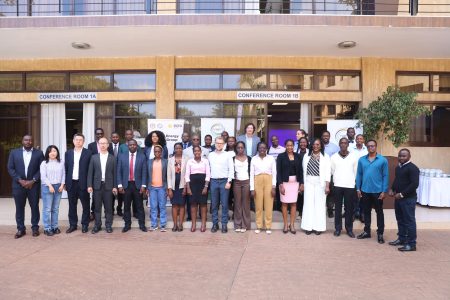
The 2nd National Off-Grid Energy Dialogue, hosted by the National Renewable Energy Platform (NREP), brought together key stakeholders to discuss innovative solutions for expanding off-grid energy access in Uganda. This vital event facilitated rich discussions on sustainable energy technologies, policy frameworks, launch of the Off-grid Energy Portal, and financing mechanisms aimed at accelerating the adoption of off-grid solutions, particularly in rural areas. Experts from government, development agencies, and the private sector shared their insights, fostering collaborative partnerships that will play a crucial role in scaling up off-grid energy initiatives and ensuring energy access for all.
Empowering Change Through Culture: Teso Region’s Clean Cooking Campaign
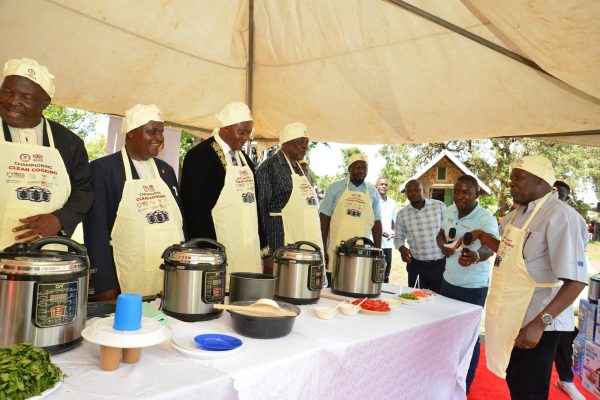
Hosted by His Royal Highness Emorimor Papa Iteso, Paul Sande Emolot, the campaign drew leaders from across Uganda, including the Umukuka of Bugisu, HRH Mike Mungoma; Hon. Dr. Peter Lokeris; Hon. Apollo Lyanda; and Hon. Sidronius Okaasai Opolot, Minister of State for Energy. Their presence amplified the campaign’s call to transition communities from traditional fuels to sustainable, clean cooking solutions. The objective was clear: shift mindsets, celebrate clean energy, and empower communities through cultural collaboration.
Renewable Energy Competition, 2025
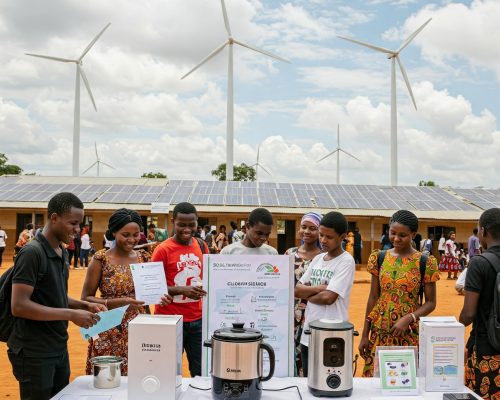
The 3rd Renewable Energy Competition is a joint initiative by the National Renewable Energy Platform (NREP) and STEPUP Standard Limited aimed at engaging young people in activities that drive behavior change and adoption of clean-cooking technologies across Uganda.
Over 88% of cooking fuel in Uganda is obtained from biomass energy, majorly firewood and charcoal. This consumption rate worries sustainable initiatives, coupled with health challenges arising from indoor air pollution and continuous exposure to smoke.
Through this competition, we aim to create awareness, clear misconceptions, and showcase the benefits of clean cooking through tailored messages and community engagement, contributing to the National Development Plan IV target of increasing clean energy use for cooking from the current 25% to 50% by 2030.
When Art Meets Energy: Inside the Green Zone Launch.
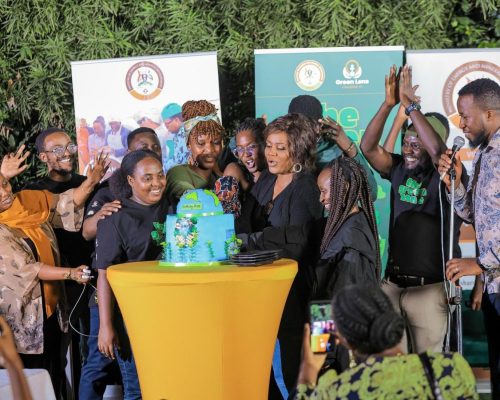
What happens when two worlds meet? When the facts driven world of science in energy interfaces with the rhythm-centric and imagination-stimulating world of poetry and music, The result is a beautifully and masterfully woven tapestry of science and art synergizing to amplify the common message of clean energy and environmental conservation. This synergy came to life during the launch of the Green Zone at the Earth Day celebrations.
The event was headlined by the songstress Naava Grey, supported by Uncle Mark and Logose Patience, who emceed with warmth and humour. They introduced a vibrant lineup including Angel Kabera, Mitch Isabirye, Loretta Kansiime, and the Afromenco Band, all of whom delivered expressive performances that added rhythm and emotion to the celebration and launch event.
CREEC Ushers in a New Era of Innovation in Sustainable Energy
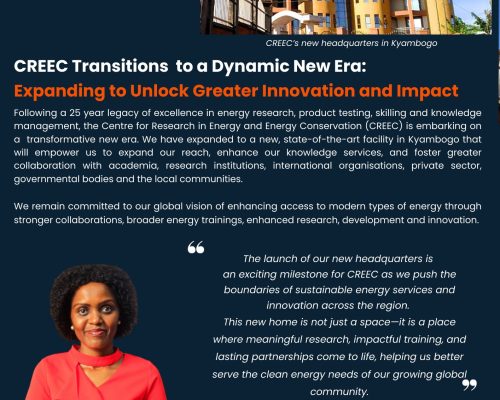
The Centre for Research in Energy and Energy Conservation (CREEC) has launched a state-of-the-art headquarters in Kyambogo, marking a bold step forward in sustainable energy research, training, and collaboration. With a renewed focus on innovation and impact, the new facility is set to amplify CREEC’s mission of expanding access to clean energy through strategic partnerships, cutting-edge research, and meaningful community engagement.
Soroti City Embraces Clean Cooking
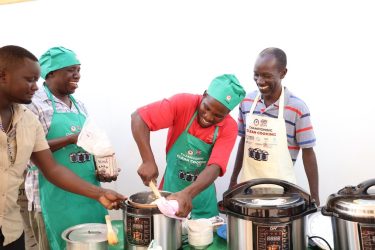
The event was graced by Mr. Maxi Muhe, representing Soroti City’s Resident City Commissioner (RCC) Mr. Peter Pex Paak, who emphasized: “Clean cooking isn’t a luxury it’s a lifeline for our communities’ health and environment.”
Promoting Clean Cooking in Arua City
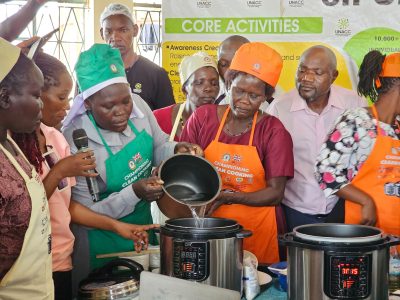
The expansion of electricity access across Arua presents a transformative opportunity to shift households toward clean and efficient cooking solutions, unlocking pathways for improved health, environmental sustainability, and economic prosperity.
Electric Cooking Takes Center Stage at Capital FM Group Clean Cooking Demonstration
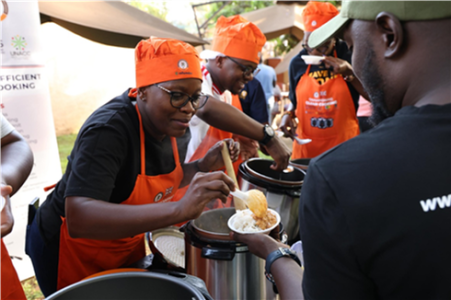
Dr. Crispus Tashobya, Carbon and Green Finance Expert at MEMD, opened the event with a powerful interview that emphasized the economic and environmental promise of EPCs. What made this event unique was its interactive approach.
Gulu City Embraces Electric Cooking: A Community-Driven Step towards a Cleaner Future
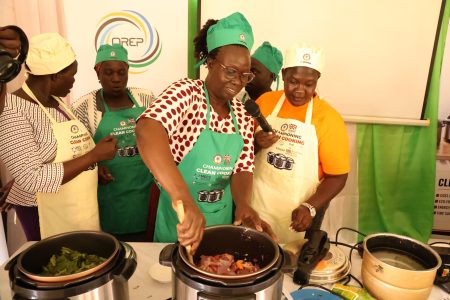
The campaign brought together city leaders, policymakers, energy experts, and the public through a series of engaging activities, including live cooking demonstrations, exhibitions, a radio talk show, and stakeholder workshops(With approximately 210 participants in total).
RE Sector Highlights Around the Region and Globe
1. Government urged to digitize schools with solar-powered technologies

Speaking during the ongoing Energy Access Investment Forum at Speke Resort Munyonyo, Mr Thomas Bonicel, Schneider’s director for Access to Energy in the Middle East, Africa, and South America, said the firm is seeking local partners who understand Uganda’s terrain and community dynamics. Schneider Electric, a French multinational specialising in energy management and automation, has called on the Ugandan government and development agencies to partner in rolling out a solar-powered solution aimed at digitising rural schools.
2. Why local clean energy hopes are up in smoke

Imagine a world where smoky charcoal stoves and paraf!n lamps are relics of the past, replaced by cleaner, cheaper energy that doesn’t choke the air or wallets. In Uganda, that future hinges on one key factor: affordability. Uganda, like many African nations, still relies heavily on biomass firewood and charcoal for household energy needs, according to the Ministry of Energy and Mineral Development data. But this dominance has implications for the population. For instance, traditional biomass conversion methods, such as the three-stone stove, release dense smoke in poorly ventilated kitchens, exposing expectant mothers to harmful pollutants.
3. Why biogas could solve West Nile’s charcoal conundrum

For many years, the Mt Kei Central Forest Reserve in West Nile stood tall a natural treasure filled with thick vegetation, diverse wildlife, and breathtaking scenery. It was a source of pride for the region and a lifeline for biodiversity. But over the past two decades, things have changed. As farming becomes less reliable due to climate change, many families have turned to the forest to make ends meet, mainly through the production of !rewood and charcoal. Every single day, an estimated 120 bags of charcoal are produced from the forest. Individuals make trips, each carrying three to four bags, and motorcycles then transport them to markets in Koboko, Yumbe, Arua districts, and even Kampala City. To make matters worse, charcoal is also being smuggled in from South Sudan.
4. Shell Gas launches clean cooking revolution in Ugandan schools, starting at King’s College Budo
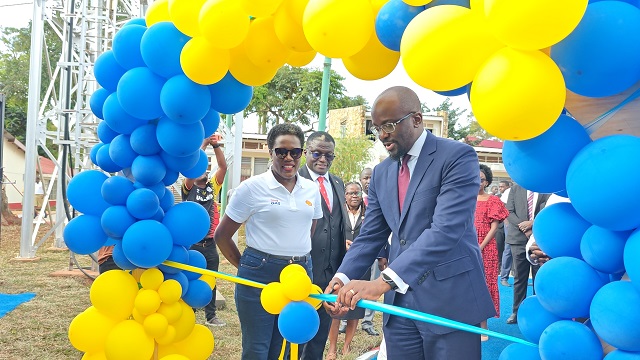
Vivo Energy Uganda, the company behind Shell fuels and lubricants, has launched a nationwide initiative to introduce Shell Gas as a clean and efficient cooking solution for schools, starting with a flagship project at King’s College Budo. This move aligns with the government’s push to phase out traditional fuels like firewood and charcoal, addressing environmental and health concerns. Joanita Menya, Managing Director of Energy at Vivo Energy, highlighted the project’s impact, stating, “We are delivering a safe, efficient, and cost-effective solution for cooking in mass environments like schools.” Speaking at the launch on King’s College Budo Founder’s Day, Menya emphasised the project’s benefits: safety, cost-effectiveness, and time savings. “We’ve delivered a safe, efficient, and clean solution for cooking in schools,” Menya said. “Chefs no longer have to spend nights cooking; they can now prepare meals in the morning like anyone else. Beyond saving time, we’re preventing respiratory illnesses caused by smoke inhalation.”
4. Ending the Vicious Circle in PAYGo Solar: How Companies and Investors Can Move the Sector Toward ‘PAYGo 2.0’

The Pay-As-You-Go (PAYGo) solar industry is facing significant challenges, with many companies experiencing decreases in both sales and investment capital. At the heart of the issue is that companies are selling products on credit to a meaningful segment of customers who either pay late or stop paying altogether. This creates a vicious circle: Rising default rates lead to worsened unit economics and, consequently, higher product prices to offset defaults, making these products even less accessible for the target customers at the bottom of the pyramid. However, a more limited set of PAYGo solar companies are thriving. These businesses have implemented systems to improve customer selection, education and support, resulting in significantly higher repayment rates and profitability. Many have begun referring to this approach as PAYGo 2.0.
Upcoming Events
Clean Cooking Campaigns
NREP and UNACC, supported by UK Aid, MECS, and MEMD, are organizing Clean Cooking Campaigns to promote the adoption of cleaner, more efficient cooking technologies. The campaigns will feature live demonstrations, expert discussions, and community engagement.
Kabale Clean Cooking Exhibition 2025
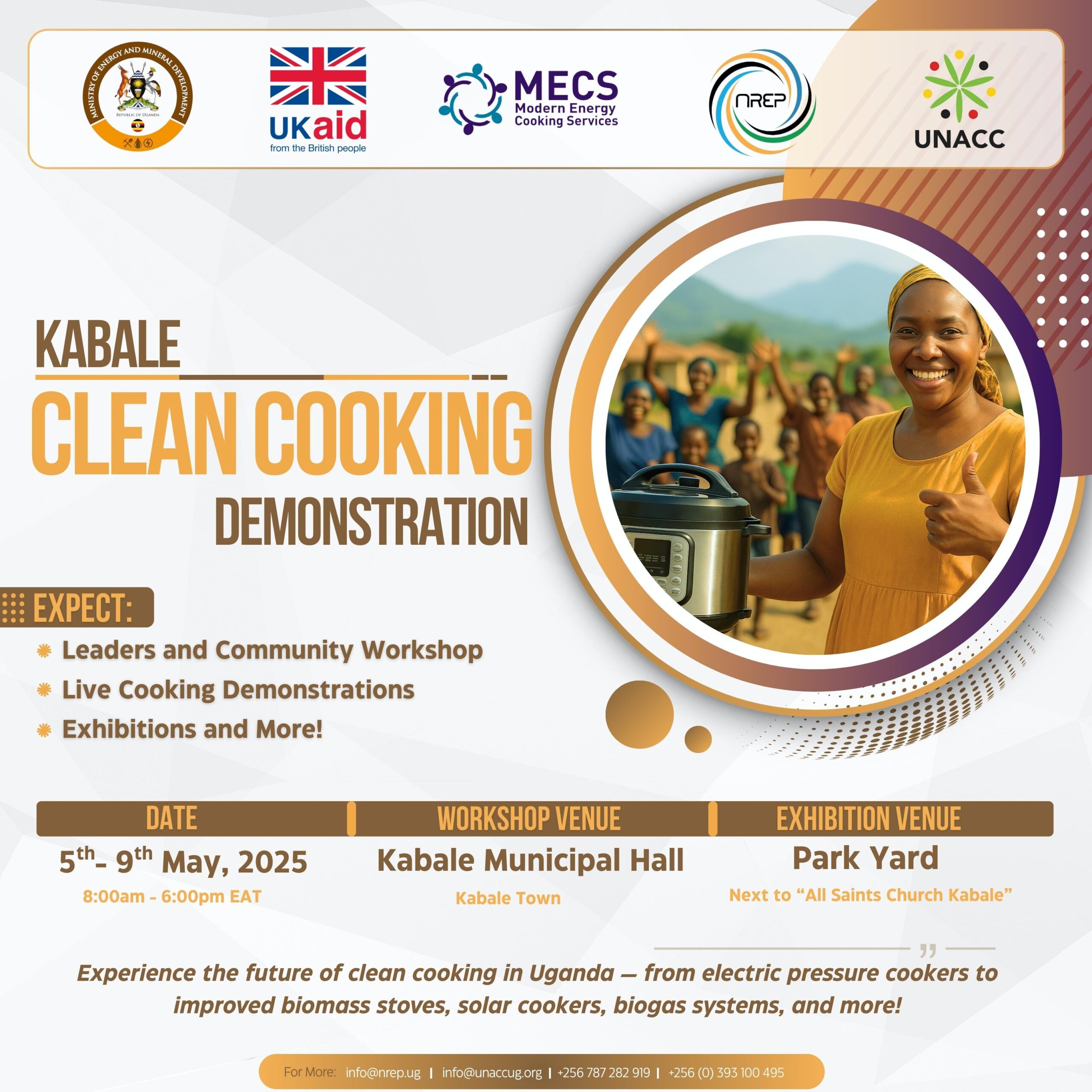
- Date: 04th – 10th May 2025
- Kabale District
- Workshop: Kabale Municipal Hall
- Exhibition: Park Yard
2nd Edition of the Women in Banking and Finance Conference
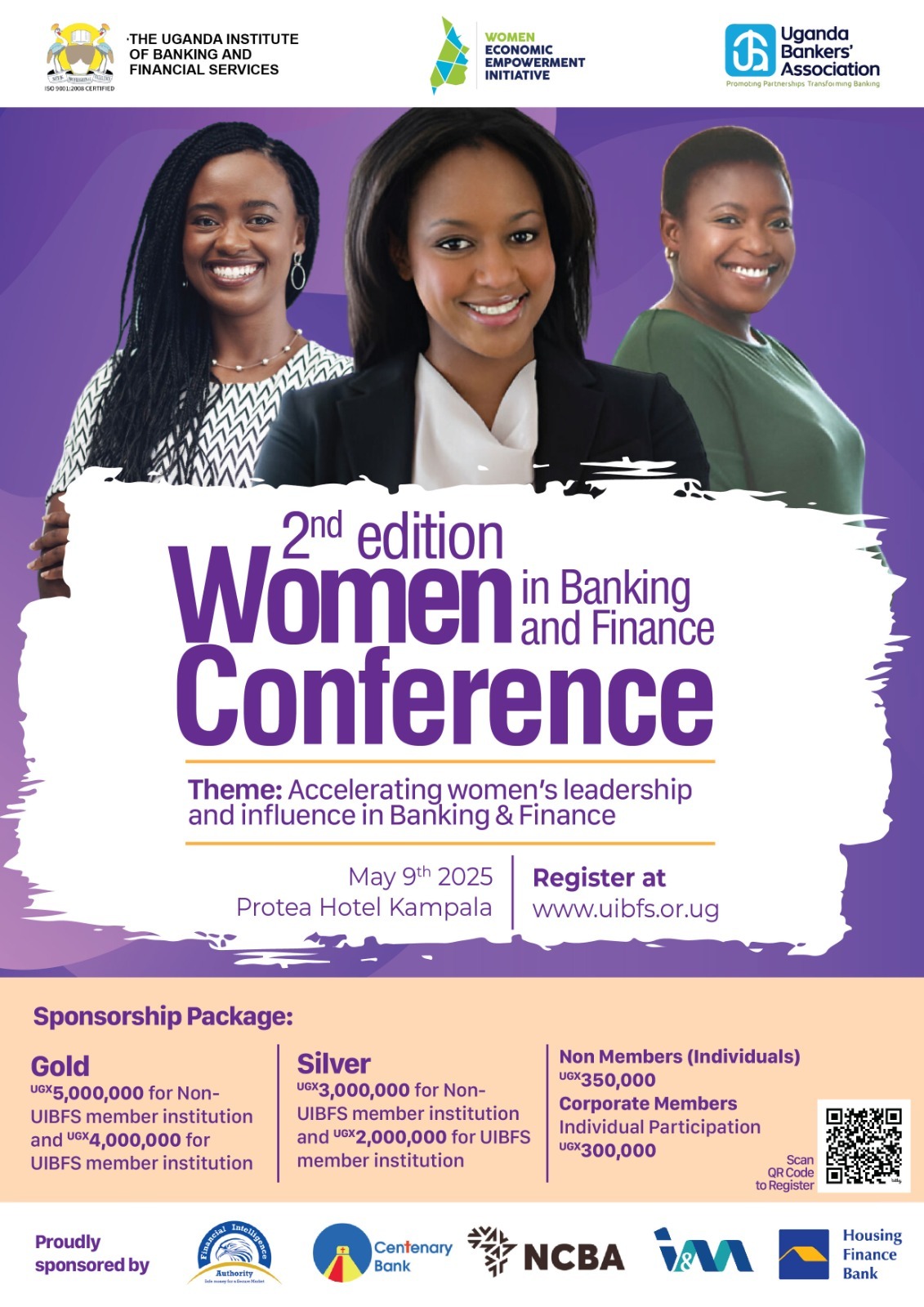
Join us on May 9th, 2025, for the highly anticipated 2nd Edition of the Women in Banking Forum — a one-day, power-packed event dedicated to accelerating women's leadership and influence in banking and finance.
Be Where Innovation Meets Impact
Join us at upcoming NREP events designed to spark ideas, foster partnerships, and shape a sustainable future.
Funding Opportunities
Expression of Interest : Green Businesses and Jobs for the Green Transformation in Uganda
The project seeks to improve women’s employment opportunities, especially in green sectors and in companies and value chains that are driving the green transformation on the African continent.
Digital Energy Challenge
The aim of the Digital Energy Challenge is to support the development of innovative solutions for increased energy access, to facilitate the integration of renewable energies and to improve energy operators’ performance.
Promotion of innovation in agriculture
Agricultural innovations in Germany’s partner countries hold immense potential by aligning with local conditions and future needs.
OPEN Fund for Women-Led Energy Businesses
Women entrepreneurs in the energy sector can apply for up to $100,000 in investment to scale their clean energy businesses.
Productive Use Financing Facility
A program by Karlsruhe Institute of Technology (KIT) and Circle Innovation supporting GreenTech, HealthTech, AgriTech, and e-mobility start-ups with tech development, market validation, and access to Germany’s innovation ecosystem.


